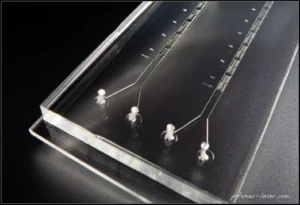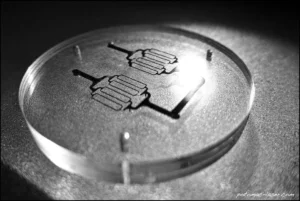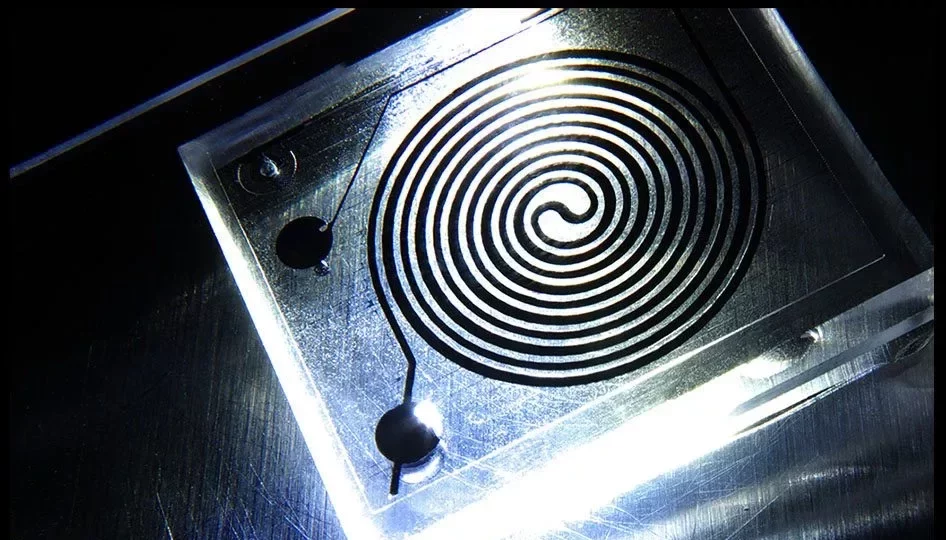
Based on an article by Albert Folch in “The Conversation “
Nanotechnology can protect us. The Covid-19 test was created in response to a world-wide emergency. The test is based on a micro fluidic system. Microfluidic systems are based on the physical principle of laminar flow. Laminar flow determines that small amounts of fluid flow through restricted or “capillary channels” – such as a blood vessel, in a non-turbulent, organized and, mathematically predictable flow pattern. The covid-19 test involves isolating blood in a channel on a paper strip called a biosensor. The channels contains electrochemical sensors that detect the presence covid-19 viral particles.
Scientists’ inspiration for creating microfluidic circuits are derived from nature. One of the most effective demonstrations of laminar flow in a microfluidic system is found in the botanical kingdom. The internal energy contained within water enables it to nourish the plant from root to crown, flowing through its capillary system. This microfluidic system is also central to the function of the human body. Humans could not live without the capillaries that transport blood between the arteries and veins, bringing nourishment to cells in all corners of the human body. Knowledge of the these natural systems have enabled scientists and engineers to create artificial systems which mimic nature. Some of these artificial systems are found in consumer devices such as inkjet printers, and 3d printers, which utilize the principal of microfluidics to transport ink droplets, and molten polymers through microscopic channels. The continual miniaturization of microfluidic devices guarantee that biological samples can be analyzed and processed at high speed, and low cost.

As evidenced by the worldwide need for covid-19 tests, there is both an immediate and long-term need for microfluidic technologies. Currently, nebulizers for asthma, glucose meters for diabetes, and pregnancy tests are devices and tests that deliver medicines or analyze liquids through microfluidics. These diagnostic devices are also sometimes referred to as a “lab on a chip”. An application of the “lab on chip” is the “organ on a chip” in which human cell functions are simulated on a micro fluidic platform. Multiples of these cellular platforms can be integrated to simulate the functions of a tissue or even an entire organ. Conversely, a cancerous tumor biopsy from a patient can be cut into thousands of pieces and placed on a microfluidic chip consisting of tiny wells, each containing a different cancer-killing drug. Using the data a doctor can then prescribe the most effective cancer killing drug. For a patient and their loved ones benefiting from this technology, (microfluidics) will truly be the world in a drop of water.
Potomac Photonics is revolutionizing the microfluidic market by developing manufacturing technologies that enable our customers to have their devices fabricated quickly and cost-effectively. With a broad range of tools, we can fabricate fully functional devices in prototyping and production volumes. Please contact us today at [email protected] or 443-543-5737 to discuss your application.
https://theconversation.com/microfluidics-the-tiny-beautiful-tech-hidden-all-around-you-160436


